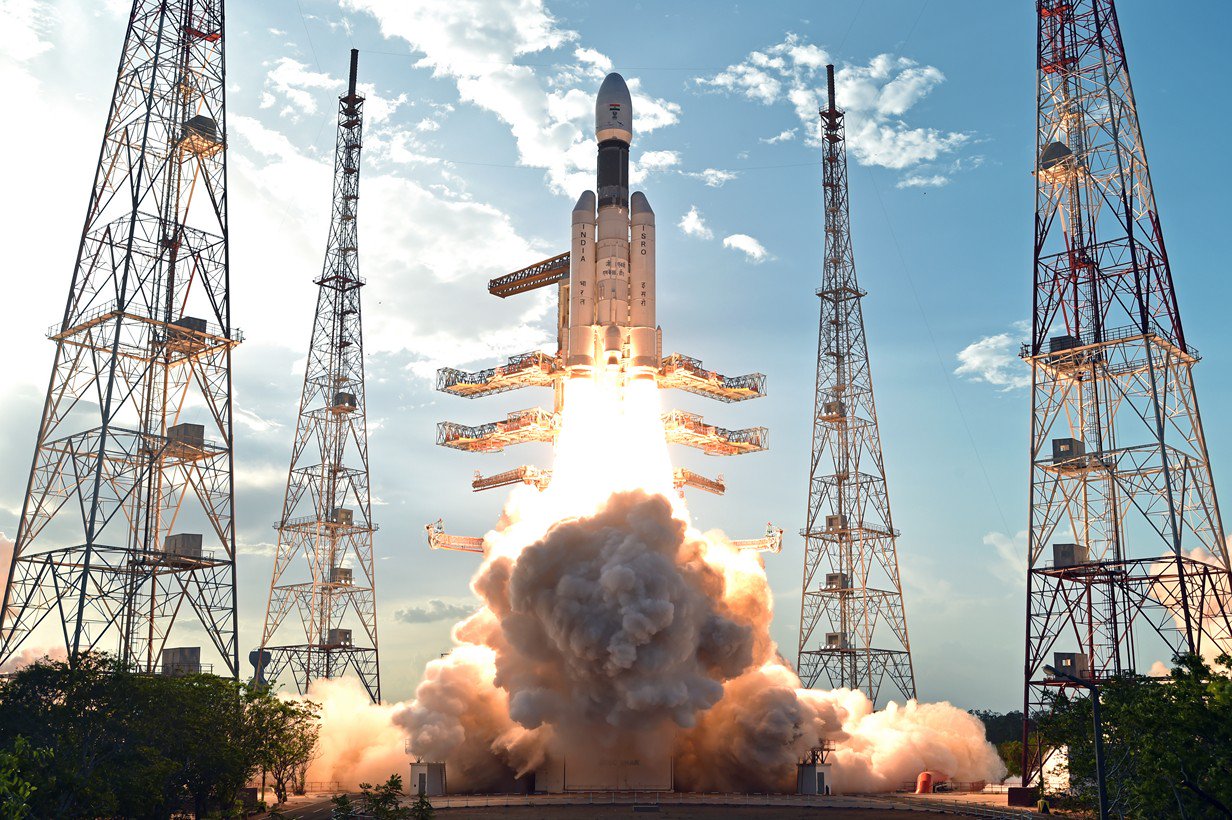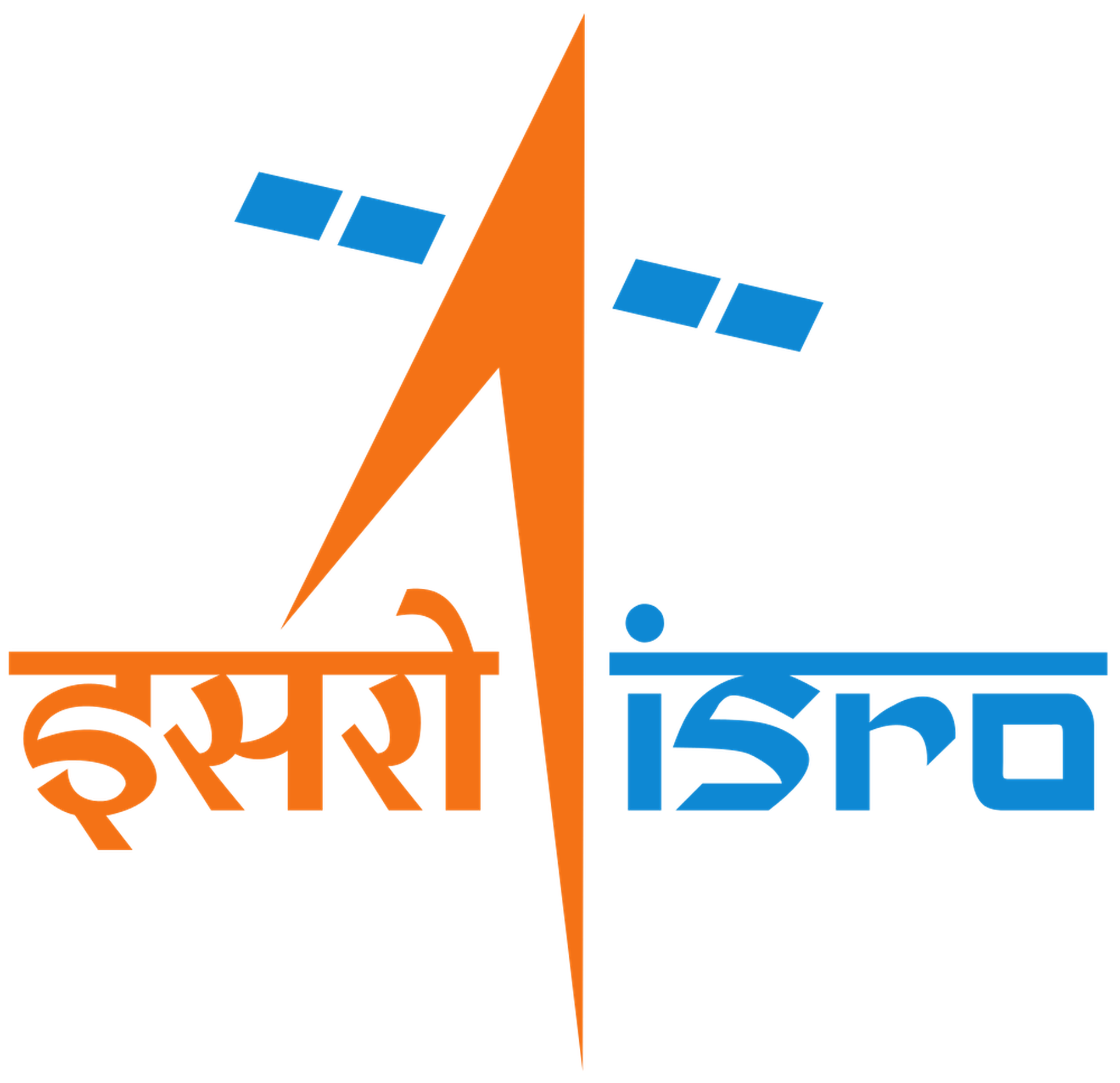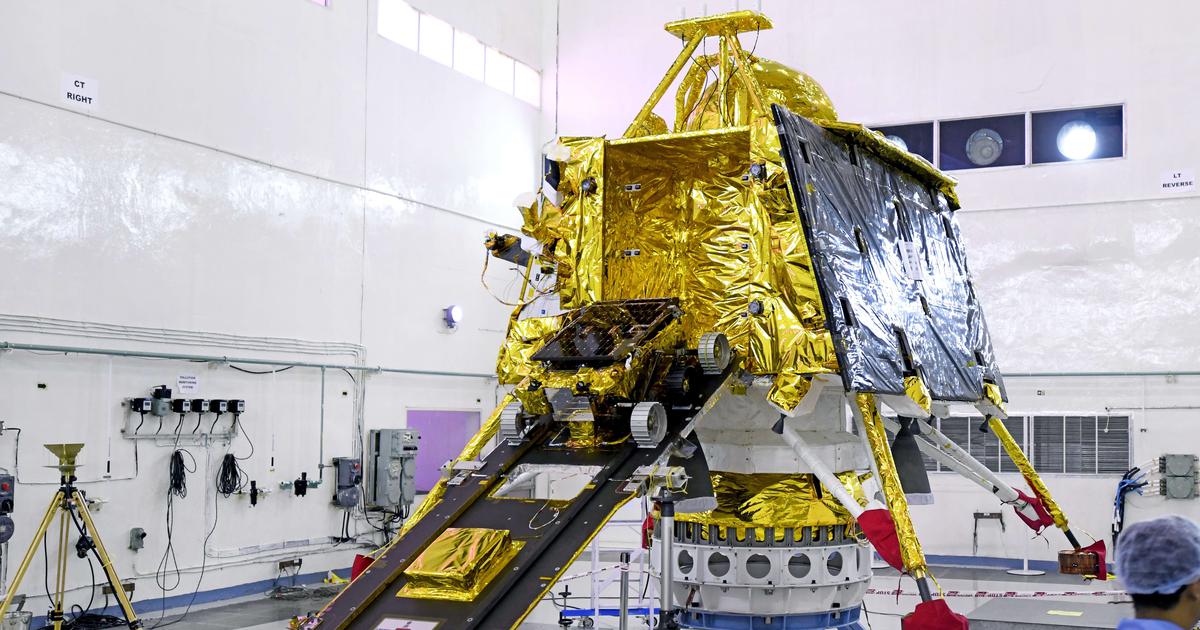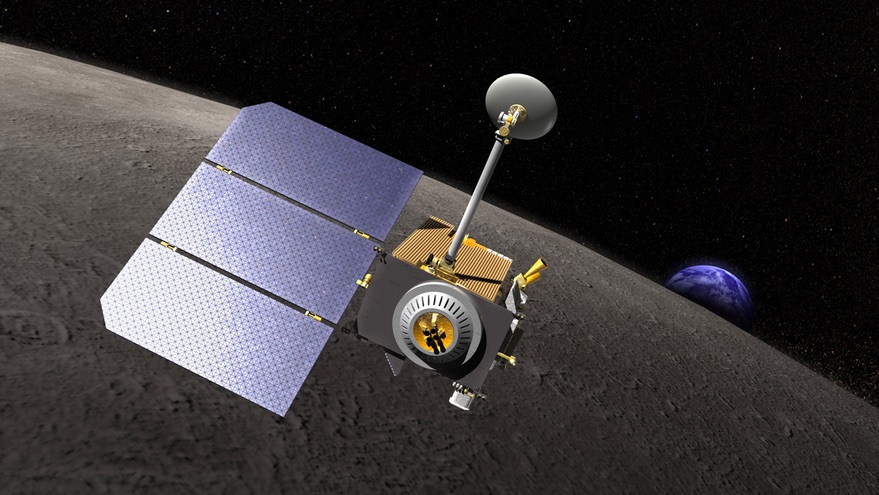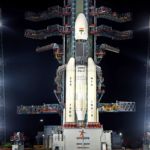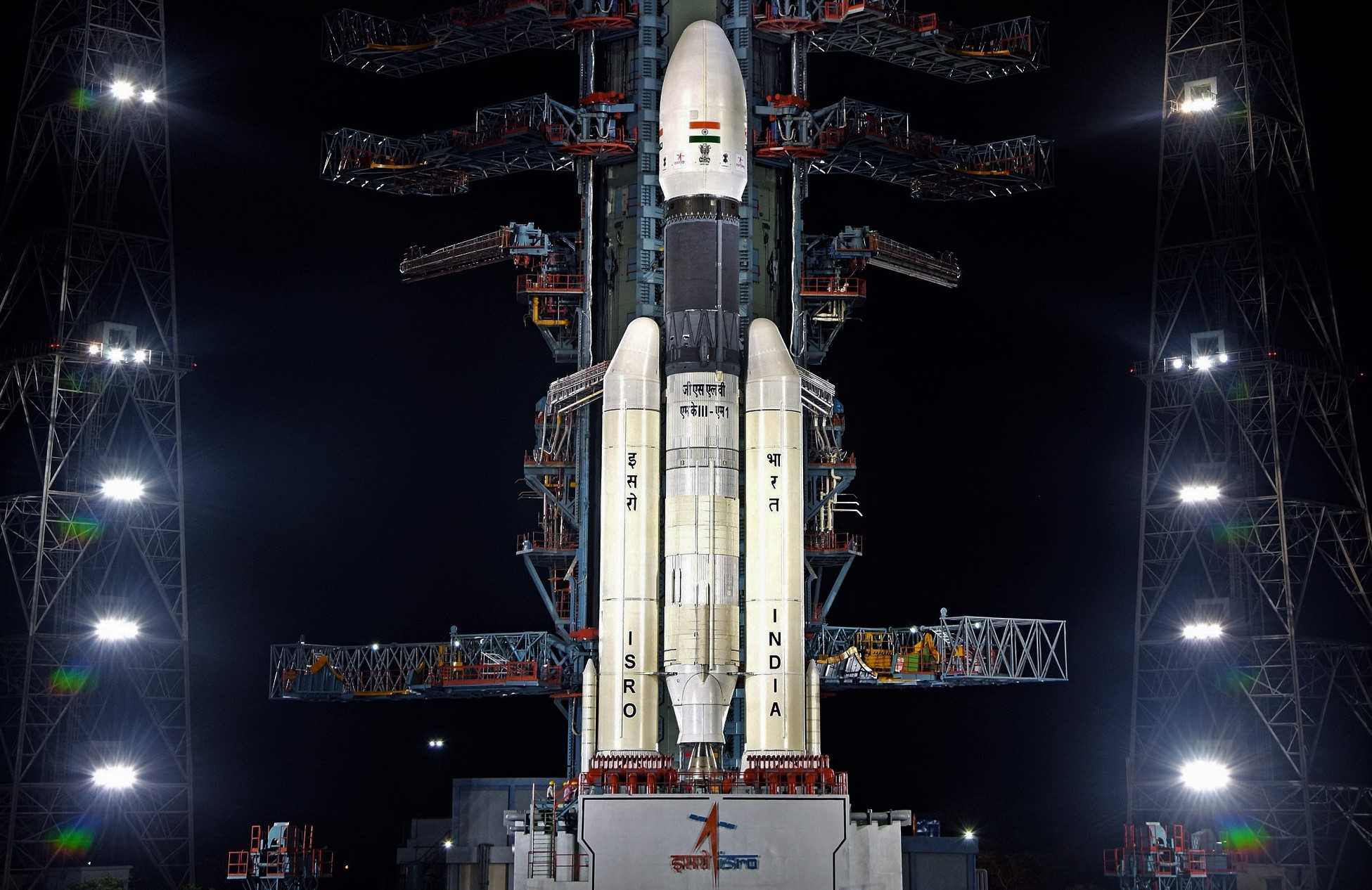LVM-3 | Chandrayaan-2
Satish Dhawan Space Centre Second Launch Pad
Satish Dhawan Space Centre, India
T?
--
Days
:
--
Hours
:
--
Mins
:
--
Secs
Date Loading...
Indian Space Research Organization
The Indian Space Research Organisation (ISRO) is the space agency of the Government of India headquartered in the city of Bangalore. Its vision is to "harness space technology for national development while pursuing space science research and planetary exploration."
Chandrayaan-2
Chandrayaan-2 is India's second mission to the Moon. It consists of an orbiter, lander and rover. After reaching the 100 km lunar orbit, the lander housing the rover will separate from the orbiter. After a controlled descent, the lander will perform a soft landing on the lunar surface at a specified site and deploy the rover. Six-wheeled rover weighs around 20 kg and will operate on solar power. It will move around the landing site, performing lunar surface chemical analysis and relaying data back to Earth through the orbiter. The lander will be collecting data on Moon-quakes, thermal properties of the lunar surface, the density and variation of lunar surface plasma. The orbiter will be mapping lunar surface. Altogether, Chandrayaan-2 mission will collect scientific information on lunar topography, mineralogy, elemental abundance, lunar exosphere and signatures of hydroxyl and water-ice.
Launch Vehicle Mark-3 (GSLV Mk III)
Height 43.40 Meters
Max Stages 3
Mass To GTO 5000 kg
Liftoff Thrust 11898 kN
Diameter 4.00 Meters
Mass To LEO 10000 kg
Liftoff Mass 629 Tonnes
Launch Success 7
Consecutive Success 7
Maiden Flight 2014-12-18
Launch Failures 0
Related Events
Chandrayaan-2 Lunar Landing
T?
Chandrayaan-2 is India's second lunar exploration mission after Chandrayaan-1. Developed by the Indian Space Research Organisation, the mission was launched from the second launch pad at Satish Dhawan Space Centre on 22 July 2019 at 2.43 PM IST to the Moon by a Geosynchronous Satellite Launch Vehicle Mark III Unfortunately the lander portion of the mission ended in failure as the lander was lost on descent.
Related News
2024-07-11T21:58:14+0000
SpaceNews
Lunar spacecraft receive dozens of collision warnings
2021-12-04T00:08:55+0000
SpaceNews
India’s Chandrayaan-2 maneuvered to avoid close approach to NASA’s Lunar Reconnaissance Orbiter
2019-07-22T13:13:52+0000
Arstechnica
India has launched an ambitious mission to the Moon
2019-07-22T09:33:53+0000
NASASpaceflight
ISRO launches India’s first lunar landing mission
2019-07-19T11:48:23+0000
Teslarati
India could become the fourth country ever to soft-land a spacecraft on the Moon next week
2019-07-18T10:33:54+0000
Spaceflight Now
Indian moon launch rescheduled for Monday
2019-07-15T04:19:13+0000
Spaceflight Now
Launch of Indian moon lander postponed by ‘technical snag’
2019-07-14T17:28:51+0000
Spaceflight Now
Video highlights from Chandrayaan 2’s launch campaign
2019-07-13T17:56:50+0000
Spaceflight Now
India seeks to join exclusive company with ambitious moon mission
2019-07-12T23:36:51+0000
Spaceflight Now
GSLV Mk.3 rolls out for launch of Indian moon mission
2019-07-10T00:34:24+0000
Spaceflight Now
